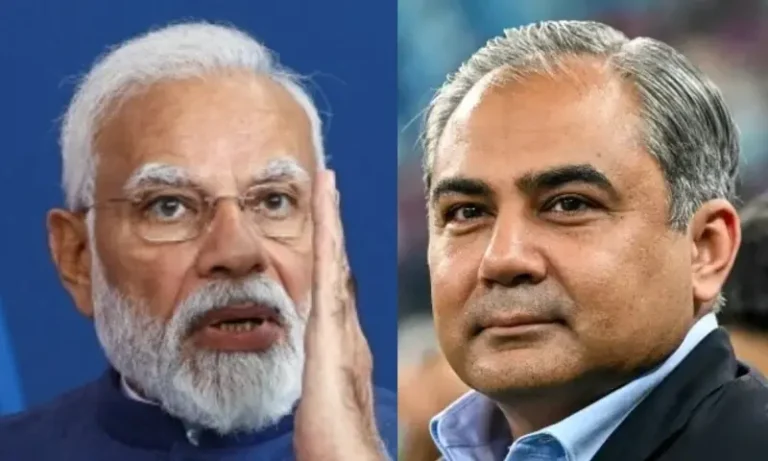Asian Cricket Council (ACC) chief Mohsin Naqvi has strongly condemned Indian Prime Minister Narendra Modi’s attempt to politicise India’s Asia Cup final victory over Pakistan. The controversy erupted when Modi took to X after India’s five-wicket win, likening the cricket triumph to “Operation Sindoor,” a military campaign waged against Pakistan during their brief conflict in May. In his post, Modi declared: “#OperationSindoor on the games field. Outcome is the same — India wins! Congrats to our cricketers.”
Also Read: England All-Rounder Chris Woakes Announces Retirement from International Cricket
Naqvi swiftly responded, criticising Modi for dragging war into the realm of sport. He remarked that using war as a measure of pride only highlights desperation. “If war was your measure of pride, history already records your humiliating defeats at Pakistan’s hands,” he said, stressing that no cricket match can alter historical truths. Naqvi further warned that linking cricket with militarism tarnishes the game’s spirit and disgraces its values.
The political undertone worsened relations between the two sides when India refused to collect the winners’ trophy from Naqvi during the post-match presentation. Broadcaster Simon Doull, who was conducting the ceremony, confirmed the shocking decision live, saying he was informed by the ACC that India’s players would not be receiving their awards from the council chief. This unprecedented act marked one of the lowest points in Indo-Pak cricket history, raising serious concerns over sportsmanship.
In a separate move, the Pakistan Cricket Board (PCB) announced that the national team would donate their Asia Cup final match fees to victims of the May 7 Indian attack that killed several Pakistani civilians, including children. The board issued a statement expressing solidarity with the families affected, saying their thoughts and prayers remain with them. The gesture came after India’s captain Suryakumar Yadav announced that his match fee would be donated to victims on the Indian side.
Speaking to reporters after the game, Pakistan’s captain Salman Agha voiced disappointment at India’s behaviour, declaring that their refusal to engage in basic courtesies such as shaking hands “disrespected cricket.” He stated, “If they think they disrespected us by not shaking hands, then I say they disrespected cricket. What they did today, a good team doesn’t do. Good teams do what we have done. We waited for our medals and took them. What has happened in this tournament is bad for cricket.”
Meanwhile, Yadav defended his side’s actions, claiming that India was “denied” the trophy but that the players made a collective decision not to accept it. He downplayed the controversy by saying, “My trophies are sitting in my dressing room — all the 14 players and support staff. They are the real trophies for me.”
Throughout the tournament, tensions ran high both on and off the field. Indian players repeatedly avoided handshakes and engaged in politically charged remarks. After India’s group-stage win on September 14, Yadav dedicated the victory to victims of the Pahalgam attack, which India blamed on Pakistan without evidence. Naqvi later condemned the statement as a “lack of sportsmanship” and lodged a complaint with the ICC, which subsequently launched an inquiry.
Further controversy emerged in the September 21 clash when Pakistan’s Haris Rauf and Sahibzada Farhan were reprimanded by the ICC for on-field gestures, underscoring the charged atmosphere surrounding the matches. The Asia Cup was the first series between the two sides since the May military conflict, in which India carried out strikes in Pakistan after accusing Islamabad of orchestrating the Pahalgam incident. Pakistan denied involvement, and the crisis eventually subsided after US mediation, though bilateral relations have remained tense.
The tournament, intended as a celebration of cricket, instead became a reflection of the deep political hostilities between the two nations. While Pakistan highlighted sportsmanship through solidarity gestures, India’s refusal to uphold basic cricketing traditions has drawn criticism from both officials and fans alike. Naqvi’s strong words underscored a broader concern that politicising sport not only disrespects opponents but undermines cricket’s role as a bridge in times of conflict.


